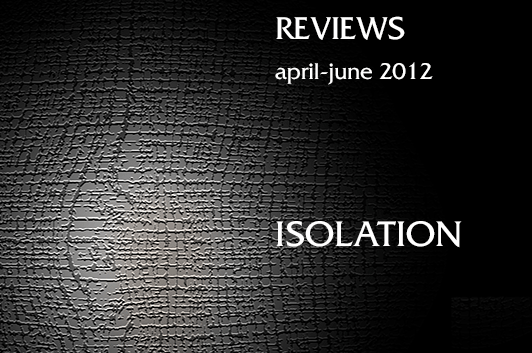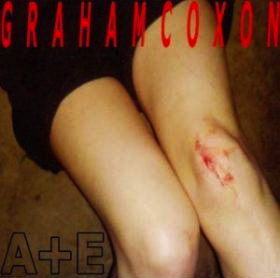Graham Coxon - A+E
Parlophone
Released: 2nd April 2012
God bless Graham Coxon. Seemingly the one member of Blur who always believed, the one man who couldn’t be burned from his indie roots by a sea of glyphosate, it was not so long ago we thought we had lost him. When even the nation’s most revered indie kid bows to the prevalent psych-folk heresy as with 2009’s The Spinning Top, it is time for national mourning, but here he returns as if he had never been away, revealing himself to be as much of a square peg as ever he was. “I'm feeling pretty much back where I started and it's quite concerning me,” he opines in opener ‘Advice’, but in truth it’s the only place he should be. From its opening electric cough, the chaotic retro-punk number splutters and spatters thick globules of guitar catarrh, revealing Coxon in all his awkward, envigorating glory. Yet A+E is not simply a return to his more anarchic moments; this eighth solo album shows progression as well as reversion to type. The post-punk ‘City Hall’ is driven along by an inexorable bass line and Coxon’s entombed, uncommunicative vocals, while the booming and scratching guitars echo early Bauhaus; it’s a fabulous song, a surprise, and its tone is reborn in the threatening, whispered ‘Knife In The Cast’ and the dark, brooding ‘The Truth’ where Coxon spits, “Slide into the dark, it’s taking shape around you. Pretty soon it’s all that you will know.” Dark days indeed and the mood is scarcely lighter in the rumbling ‘Seven Naked Valleys’ with its crazed sax and guitars being skinned alive. Another surprise is the presence of synthesisers throughout, though Coxon uses them to great effect, not to drive his songs through but as undercoat on which to daub outrageous bursts of six string colour. This is glorious. ‘Running For Your Life’, a tale of city confrontation, spins insanely, while ‘Bah Singer’ charges walls head on and sends them flying. Of course, being Coxon, lighter moments intrude. ‘What’ll It Take’ with its whistling, whizzing synths still won’t get us out on the dance floor, while ‘Meet And Drink And Pollinate’ sounds like Sham 69 covering Kraftwerk. They’re fun, but maybe a little out of place, meaning the otherwise genuinely dark A+E doesn’t quite become his The Man Who Sold The World moment. Nevertheless, if he maintains this sort of form he could quite possibly become the man who saves the world. This is inventive, intelligent and steeped from beginning to end in a thorough understanding of everything that really matters in music. Bloody hell, if the bloke could sing ....
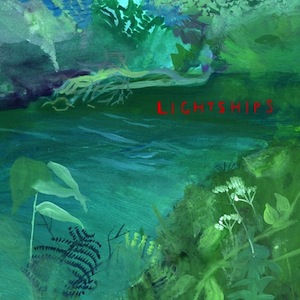
Lightships - Electric Cables
Geographic
Released: 2nd April 2012
Teenage Fanclub were always a pooling of diverse talents, with all of the members of the band contributing songs of generally unerring quality and style. Lightships is the side project of bassist Gerard Love who has been responsible for some of the Fannies’ finest moments, including four tracks on the peerless Grand Prix album. Over the past couple of years, on top of his usual band duties, Love has been working with former Fanclub drummer Brendan O’Hare, guitarist Dave McGowan, Belle & Sebastian bassist Bob Kildea and flautist Tom Crossley to put together Electric Cables which is quite simply an album of exquisite pop songs. If Metronomy captured the sound of the summer last year with the gentle electronica of The English Riviera, Love has certainly claimed the prize this time around with a collection of heartfelt, meticulously crafted tunes that never fail to hit home despite rarely getting above walking pace. Electric Cables has a pastoral splendour that manages to sheer away from the whimsical, yet elegantly captures the mood of the season and drenches you in warmth and light. When Teenage Fanclub left the big city behind and headed for the hills for a quiet life with Songs From Northern Britain, Love obviously put down firm roots as from the opening ‘Two Lines’, immersed in a summery wash with achingly lovely guitar solos, to the closing ‘Sunlight To The Dawn’, graceful and mellifluous, there such a surety of step and understanding of what lies around the corner, you can allow yourself to be carried away in its confident embrace and simply drink it all in. There’s not a bad moment. The insistent ‘Muddy Rivers’ dances along melodically, ‘Sweetness In Her Spark’ falls like a Summer shower and ‘Silver And Gold’, like an early flower, bursts from a whisper into exuberant life. There’s little touches of class at every turn: a whizz of keyboards, some melancholic flute, a burst of guitar, and it is clear these are consummate musicians, working in perfect harmony, creating something extraordinary. And a special mention here for O’Hare; some of the drumming is magnificent, lifting the mood though never intruding on it. Lie in the garden on a sunny day sipping a long, iced drink and playing this record; then hope time stops forever.
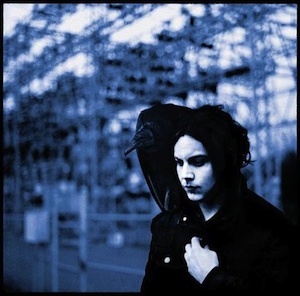
Jack White - Blunderbuss
XL
Released: 23rd April 2012
We like Jack White. Any American who can pose with a cricket bat on the front cover of an album, name another one Icky Thump, and appreciate the importance of Lonnie Donegan in the development of rock music, is one with an inquisitive eye and an open ear. More importanty, we like Jack White because the man is obsessed with music; it flows through the very fibre of his being and spills out of every pore. Jack White makes music as if his life depends on it and fortunately he is pretty good at it; the timbre of his voice is perfect for his contemporary blues explosions and, despite his talent as a musician, it is the voice that carries his songs away and stamps them upon your consciousness in a manner very few seem to achieve these days. This leaves him in the enviable position of decorating his songs how he will and Blunderbuss presents us with a variety of approaches; an album well named as White’s shot spits out in a wide spread and rarely fails to bring down its mark. Of course, this is all rooted in the past, but it is more than mere homage to long-gone heroes, for White shows an acute perception of his nation’s musical heritage and is therefore able to drag the familiar out of history to help shape something modern and genuinely unique. Throughout Blunderbuss we hear echoes of days gone by, whether tinkling ivories from a Wild West saloon, the soundtrack from a silent movie, twisted chords from the Delta or in-your-face Detroit rock. Chuck in a bit of vaudeville and some punk attitude and you are left with a melting pot of influences that shouldn’t work at all, but meld into one logical whole that carries White’s stamp all over it. No wonder he felt happy at last to release a record under his own name after killing off the White Stripes and the Raconteurs; this album shows all the hallmarks of a multi-faceted, intriguing character completely aware of the debt he owes his forbears, yet keen to face up to the responsibility of keeping their flame alive. There are plenty of highs, the urgent ‘Missing Pieces’, the blast of ‘Sixteen Saltines’, the edgy ‘Freedom at 21’ or ‘Weep Themselves To Sleep’ with its fabulous broken guitar solo. And its not just Americana: ‘On And On And On’ hints at the Beatles and the intro and outro of ‘Hip (Eponymous) Poor Boy’ leave you waiting for Brian Cant to start warbling about train drivers and postmen as it appears to be lifted intact straight from Camberwick Green. Lyrically much has been hinted at about White’s recent separations, both professional and personal, though if a writer’s life doesn’t shape his work, what on earth does? But White was never much one for pouring out his heart and soul to the public, and rightfully so, and there seems little value in digging for half buried truths in random couplets. Whatever his pain, White finds solace in his music. “I ain't stoppin' the train / I got a pill for the pain”, he declares and that’s fine by us. It would be fair to say there isn’t anyone else like Jack White which in many ways is a shame, but at least makes these releases all a little bit more special. This is great.
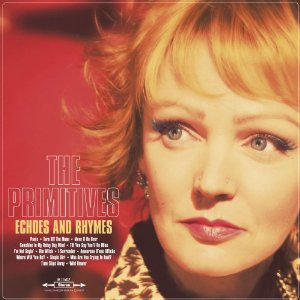
The Primitives - Echoes And Rhymes
Elefant
Released: 30th April 2012
2012 has certainly been a year for bands from the past reuniting to have another stab at glory, and few of these have been more welcomed than The Primitives. First emerging from Coventry in 1986, their early recordings were fantastic, rough and ready pop tunes carried along by a nasty bass, jangling guitars and the almost bored vocals of singer Tracy Tracy. They hit the big time with a slightly more refined sound, 1988’s ‘Crash’ emerging as all-time classic single, with the band appearing on stage as cool as you like, a perfect guitar-bass-drums-girl singer combination. Sadly their star waned all too soon; their third album, 1991’s Galore, failed to make any impact and by the following year it was all over. Sadly brought back into contact with each other at the funeral of original bassist Steve Dullaghan in 2009, the band felt the time was right to reunite and following some live shows in Coventry and London that year, they began to tour once again and returned to the studio to lay down some new songs. Echoes And Rhymes, then, marks their first album in twenty-one years and interestingly consists entirely of cover versions, mainly of 1960s songs originally released by female vocalists. Of course, this always sets the alarm bells ringing. There is seldom anything worse than a band’s Pin-Ups moment, but pleasingly The Primitives here emerge with an atractive collection of obscure songs many will never have heard before. The album opens with a series of marvellous copies with ‘Turn Off The Moon’, a cover of Sue Lyon’s 1962 b-side, and ‘Move It On Over’, an obscure late sixties soul single by Le Grand Mellon, capturing perfectly that classic sixties’ sound. Lyon had been the star of Stanley Kubrick's controversial film Lolita with her single entitled ‘Lolita Ya Ya’ little more than a cash-in release, but her voice is terrific and The Primitives capture the spirit nicely, though with more guitars and fewer strings. The latter cover is much more faithful to the original, but before you get the feeling this is merely an album of sixties copies, we are presented with a slightly psychedelic take on Polly Niles’ 1970 single ‘Sunshine In My Rainy Day Mind’ and a marvellously heavy and claustrophobic version of Jackie De Shannon’s 1965 number ‘Till You Say You’ll Be Mine’. Of course, it doesn’t all work so well. ‘I Surrender’, a 1969 Northen Soul single by Bonnie St. Claire, loses its clean, uplifting spirit in The Prims’ heavy handling, and it takes Paul Court to handle the deep vocals of Nico’s 1965 single ‘I’m Not Saying’, but these are minor gripes. This, on the whole, is a job done well with much to enjoy and it will be interesting to see where the band goes from here.

Gallon Drunk - The Road Gets Darker From Here
Cloud Hills
Released: 7th May 2012
Another group re-emerging after a lengthy absence, this is the first album from London’s Gallon Drunk since 2007’s The Rotten Mile. Never the most prolific of bands, this is only the seventh collection of new recordings since they first emerged with 1992’s You, The Night... And The Music on the Clawfist label when they were being acclaimed as the latest inheritors of the flame wantonly discarded by The Birthday Party. Gallon Drunk looked great, enthralled on stage, and had a nice line in deconstructed blues, yet struggled to build upon their early successes, especially in the press, and sadly spent much of their later career in the shadows before largely fading from the memory. With main man James Johnston spending five years as a Bad Seed and recently performing with Faust, it was feared we would never again hear GD’s particular blend of aural chaos, but Johnston, Terry Edwards and Ian White recently dived back into the studios at Hamburg to lay down this new analogue recording under the guidance of Faust producer Johann Scheerer, and the result is a pleasingly blunt collection of eight songs over thirty-seven minutes that serves as a great reminder of just how much we have missed them. Gallon Drunk never did subtle well, though there are plenty of nice touches on this record that show a musical sensibility, perhaps encouraged by Scheerer who urged the band to try out things they normally wouldn’t have done. There are some gorgeously mangled solos, some choral backing vocals, dissonant harmonicas and fantastic saxophone bursts all decorating the band’s bludgeoning blues carnage. It’s heavy stuff, pounding and dangerous; most of the time Ian White doesn’t play the drums, but hits them, and more than likely kills them. Edwards’ bass reverberates menacingly and Johnston’s dirty guitar grinds and grates its way through the messy battlefield framing his harsh and knowing vocals. Bloody hell, it’s good stuff and why aren’t there more young bands playing like this? The single ‘You Made Me’ is big, ponderous and frightening; the swirling ‘Hanging On’ sounds like a beefy These Immortal Souls and is as good as anything we’ve heard in the last ten years; ‘A Thousand Years’ throws out hints of Swervedriver at their hardest with some top order Psychedelic Furs’ sax; ‘Stuck In My Head’ is slow and threatening with gorgeous, distended guitars and Marion Andrau joining Johnston on vocals; ‘Killing Time’ is a huge, pulsating journey through a nightmare wild west; ‘The Big Breakdown’ and ‘I Just Can’t Help But Stare’ are diseased jazz; and we conclude with ‘The Perfect Dancer’, edgy and threatening with whispered vocals drowned in a distorted guitar wail. Recorded straight to tape, the best way of listening to this is to invest in the heavy duty vinyl release. This comes with a CD copy of the album and codes for downloading the tracks online – surely this is how all albums should be released these days? Quite simply, this is fantastic. Buy it.
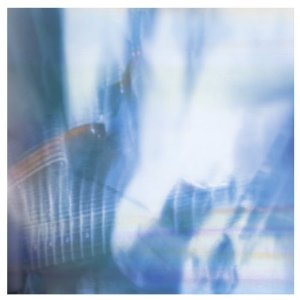
My Bloody Valentine – EPs 1988-1991
Sony
Released: 7th May 2012
Having been one of the literally twelve people who bought their early records and then fell in love with the ‘Sunny Sundae Smile’ EP on Lazy, the development of My Bloody Valentine into avant garde press darlings through ‘Strawberry Wine’ and
Ecstasy to the ground-breaking Creation EPs and albums was fascinating to witness. Of course, the band became more and more studio-bound as the music became more tangental and Kevin Shields became harder to please – the records took longer and longer to finish, with the ever increasing studio costs for their final album
Loveless allegedly dragging Creation to the brink of bankruptcy. The same factor probably explains why the remastering and reissues of
Isn’t Anything and
Loveless have taken a long time to come to fruition, their release being put back some nine times by an increasingly despairing Sony. This month they have finally seen the light of day (though
Loveless has ended up with two remasters being released together) and the reworked albums have been accompanied by this repackaging of the band’s four Creation EPs: ‘You Made Me Realise’, ‘Feed Me With Your Kiss’, ‘Glider’ and ‘Tremolo’. This is a neat package; a four-fold gatefold sleeve containing two discs with the inner parts featuring the virgin artwork of the four EPs and a sixteen-page booklet containing the EP covers proper along with collections of photos of the band. No words here; MBV’s music always said everything you needed to know about them and few bands have ever delivered with such oblique eloquence.
The first thing you notice is that August 1988’s ‘You Made Me Realise’ EP is no great step away from the band’s earlier Lazy releases. There are distinct vocals and the harmonies on ‘You Made Me Realise’ and pretty much all of ‘Thorn’ (especially the drumming) are pleasingly familiar. Where the songs begin to swerve is in the unfeigned aggression and the mixed-up backing tracks to ‘Slow’ and ‘Cigarette In Your Bed’ where you see the band taking the first steps into creating soundscapes rather than tunes, and trading prescience for ambience. The ‘Feed Me With Your Kiss’ EP, emerging just three months later, is further down the path of experimentation. The lead track is another weighty number with Shields’ and Bilinda Butcher’s vocals largely swamped in throbbing swathes of noise and virtually indecipherable. The other tracks are given a similar treatment, indie pop songs downing the Mr Hyde potion and emerging as something far tougher, far more dangerous, and far more interesting. ‘Emptiness Inside’ remains a classic, reverberating hollowness, while ‘I Believe’ and ‘I Need No Trust’ are warped and atmospheric.
It was April 1990 before the band released their next new material and the ‘Glider’ EP felt like it had come from another planet, with no traces of the old MBV anywhere in sight. It is here the remaster comes into its own, ‘Soon’ is marvellously sharp and it is impossible not to immerse yourself in its welcoming folds of pulsating sound, losing consciousness in a tantalising embrace of shapes, colours and dreams. ‘Glider’ is edgier and less welcoming, ‘Don’t Ask Why’ is, unusually, built around its vocal to an accompaniment of empathetic distortion, and ‘Off Your Face’, graced with a dreamy Butcher vocal, refinds the warmth to leave you glowing inside. The final EP on this compilation saw the light of day in February 1991 though it was to be another nine months before it was followed by the Loveless album. Parts of ‘Tremolo’ proved to be even more deconstructed than ‘Glider’, the lead track ‘To Here Knows When’ barely able to hold itself together as it spills out of the speakers and floats away into the atmosphere. This really is remarkable stuff, music transformed out of all recognition but still retaining the power to lift and shape your emotions and leave you eager for more. The remainder of the EP doesn’t disappoint either. ‘Swallow’ captures similar emotions, ‘Honey Power’ is driving and aggressive and torn apart by cutting guitars, while ‘Moon Song’ is fittingly otherworldy.
As well as the four Creation EPs this album also contains seven rare tracks, including ‘Instrumental No.2’ and ‘Instrumental No.1’ (for some reason in that order), taken from the free seven-inch single given away with early vinyl copies of Isn’t Anything, the difficult full version of ‘Glider’ from the Glider Remixes single, the excellent ‘Sugar’, originally given away on a flexi-disc with The Catalogue, and three previously unreleased tracks, the early-sounding ‘Angel’, ‘Good For You’ and ‘How Do You Do It’ – all interesting listens and certainly missing links in the band’s evolution. It would be easy to underestimate the impact these four EPs had on the music scene at a time when the hugely important music press was completely blown away by them. My Bloody Valentine shook the foundations of independent music and the concept of how records should sound in way not seen since Public Image Limited first emerged on the scene. They remain not only historically important, but a bloody good listen and this is well worth an investment.
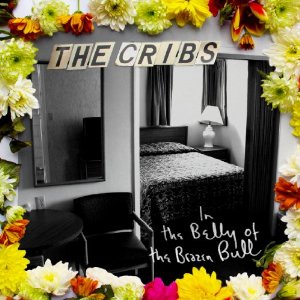
The Cribs - In The Belly Of The Brazen Bull
Wichita
Released: 7th May 2012
It always felt strange that Johnny Marr had tied up with The Cribs. It seemed so out of place that the master of the delicate and subtle could find a home in a group renowned for their raw exuberance and in-your-face laddishness. There’s little doubt Marr guided the developing band through a more introspective phase, but following his recent departure from the ranks, this new double album from the brothers Jarman clearly demonstrates how much The Cribs have progressed in their own right in the eight years since the release of their eponymous debut album. Of course, the Wakefield terrors were snotty kids at that time and no doubt wound up as many people as they attracted through their press interviews, but the common factors throughout their recording career have been their easy grasp of melody and the ability to blow an audience off its feet while still sounding like they were doing them a favour. In The Belly Of The Brazen Bull is a remarkable piece of work; it sounds huge throughout, littered with feedbacking squeals, massive guitars, drilling drums and some marvellously off-the-wall basslines. You feel there should be about twenty of them making this much noise, yet throughout it is clear the band has a handle on everything they are doing; there is a mellowness at the very heart of this record, a control that makes its myriad textures all the more impressive. And we have everything here. The furious, slow ‘Back To The Bolthole’ revels in its own struggle, the grungey ‘Come On, Be A No-One’ has everything such a song needs from its massive chorus to feedback-drowned verses, the Steve Albini produced ‘Chi-Town’ is a thrashy punk classic with a brilliant ‘Woo!’ over its splendid guitar solo, and even the gentler songs such as ‘Anna’ are infused with such life and enthusiasm that you cannot help but bathe in the warmth of it all. And to crown it all, the band even puts together its own Abbey Road medley at the end, twelve glorious minutes recorded (of course) at Abbey Road itself. From the thumping ‘Stalagmites’ decorated with Pavement-style discordant stabs of guitar, we are led into the gently melodic, sixties’ pop of ‘Like A Gift Giver’, then to the gorgeous jangle of ‘Butterflies’ – surely one of the best things the band has ever recorded – and finally into the tongue-in-cheek ‘Rock Encore With Full Cast’ with its repeated refrain, “Sorry that it’s taken years / We were victims of our own ideas / But I’d rather be tied to myself than to anyone else.” The Cribs have certainly walked their own path from their early days when they would play anywhere for some petrol money and a case of beer, to their fifth album which has seen them emerge as a truly exciting and valuable force in British rock music. If they carry on like this, the stadium encore will be theirs one day. We wouldn’t wish that upon them, but if they get there it will be of their own doing and they would have enjoyed one hell of a ride. Big, bold and brilliant, but we can’t wait nearly three years for the next offering.
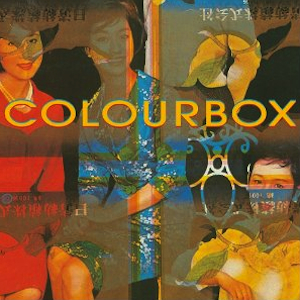
Colourbox - Colourbox
4AD
Released: 28th May 2012
At one brief point in time Colourbox were all there was. Having come out of nowhere with the astonishing coupling of ‘Tarantula’ and ‘Breakdown’ in 1982, somehow unearthed by the increasingly impressive 4AD despite being unlike anything the label had ever previously released, the band followed this up the following year with a reworking of the two tracks before unleashing on an unsuspecting public one of the strangest, most wonderful melting pots of musical insanity we had ever heard. This four-track mini album, instinctively titled
Colourbox, was housed in a dramatic sleeve featuring copulating horses and there were probably decent songs in there somewhere, but the whole record was smashed up beyond belief. Colourbox tore the hearts out of their own songs and threw them to the four winds to see what resulted. It was a hugely appealing Frankenstein’s monster of a record, the band’s natural bias to soul sounds ravaged by their stubborn indie outlook and uncontrollable need for experimentation. The elegant vocals of Lorita Grahame fought against the tide, emerging piecemeal in a sea of dub, sample and glorious anarchy; the record stayed in your head for weeks on end and has always remained in our hearts. It was magic. Though many couldn’t see past the sheer bravado, those who understood realised this was something at the very core of music, artists daring to step out and break boundaries, daring to care enough to try something new and wild.
Of course, the dream faded much too quickly, the band failing to record another record after 1986, but now Colourbox are once again being thrust into the limelight and a new generation has the chance to marvel at a remarkable body of work. This new four-disc box set marks thirty years since brothers Martyn and Steve Young along with Ian Robbins first released a record on 4AD and contains all of their seven-inch single mixes, all of the twelve-inch versions of those tracks, the aforesaid mini album, their debut full length album, again brilliantly titled Colourbox, the songs from the bonus album given away with early copies of that release, and a collection of BBC sessions, all overseen and remastered by Martyn Young. And there is much gold here. The original ‘Tarantula’, gorgeously sung by Debian Curry, is as good as it gets, dreamy yet powerful, built on a ghostly keyboard refrain and decorated with stabbing guitars and running out to a huge, incongruent bass riff. The second version, released in 1983, lacks the same impact, but the reworking of ‘Breakdown’ on the other side of the single eclipses the first version and is simply stunning: an unstoppable, pounding monster of a tune with a fat keyboard backing track, nice bursts of guitar, some excellent dubbing and new vocalist Grahame exuding warmth as she sings the bleakest of songs before being mixed out of existence.
Robbins, who had written or co-written much of the band’s material, sadly departed following the mini album and the brothers Young released the band’s first full length album with Grahame on vocal duties in August 1985. Although tracks such as ‘Just Give ‘Em Whiskey’ were build around plenty of samples (a technique that was reap dividends in 1987 with the massive No.1 hit ‘Pump Up The Volume’, credited to MARRS but ostensibly a Colourbox record), on the whole this was a collection of much more direct songs, free from the maniac engineering of the previous releases. In some ways this was a shame, but the quality of the work shone through the relative simplicity of the approach. ‘The Moon is Blue’, ‘Inside Informer’, ‘Suspicion’ and ‘Arena’ are chunky, electronic soul classics, and the band’s respectful version of the Supremes’ ‘You Keep Me Hanging On’ was totally ignored in July 1985 only for Kim Wilde’s weaker version to storm to No.2 in the charts just over a year later. And all the time Colourbox lyrics had an edge, hitting out at authority and regulation, while enshrining the importance of the individual. “Fight against them or they’ll break your spirit down / Fight against them or they’ll try, try to control you,” Grahame croons and it is clear nobody was controlling Colourbox. The music is so idiosyncratic and refreshing there has never been anything quite like it.
Martyn Young has done an excellent job on the remastering here. The sounds are sharp and clean, the BBC sessions are a terrific bonus, and the box set lives up to 4AD standards; the four discs are individually housed and accompanied by a nice set of spot uv’d cards featuring the details of every release. Colourbox were great and this is a worthy celebration of one of Britain’s most eccentric and appealing bands. And for sixteen quid .... you’d be mad not to snap this up.
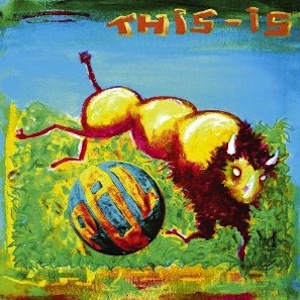
Public Image Limited - This Is PiL
Public Image Official
Released: 28th May 2012
Let get this straight, it never bothered us in any way that Johnny Lydon featured in some adverts for Country Life butter or in some television reality show. The only thing that really bothered us was that 1992's
That What Is Not, the last PiL album, was a pig's ear of a record, a really sad conclusion to one of the most adventurous, important and exciting series of recordings any band had ever made, from 1978's groundbreaking
First Issue to 1989's more conventional
Nine. When it was announced that Lydon was using his ill-gotten television gains to reform PiL and record some new music, it sent pulses racing and visions of Lydon, Levene and Wobble reunited on stage were almost too much to comprehend. Sadly, this proved not to be the case, with apparent negotiations stalling, and instead Lydon gathered together former
Happy? era members, guitarist Lu Edmonds (The Damned) and drummer Bruce Smith (The Pop Group), along with new face, bassist Scott Firth. Having toured to good reviews, the new PiL released the vinyl-only 'One Drop' EP in April this year and now unleash
This Is PiL, the band's eleventh album and first for some twenty years.
After such a long period of creative inactivity, you might have expected Lydon to be bursting with ideas and energy and, thankfully, he doesn't disappoint in delivering a quite astonishing record and, furthermore, one he
has obviously enjoyed making. As his new band produce a series of funky backdrops, all decorated with Edmonds' inventive guitar washes, Johnny is in his element, merrily proclaiming in the belching intro to 'This Is PiL', "You are now entering a PiL zone ... lucky people." This is Lydon at his most playful; at times he almost croons his vocals, at others he adopts a strange patois, announcing in the excellent 'Reggie Song', "I am from Finsbury Park and I’m having a lark." For someone who has chosen to spend much of his life in Los Angeles, this is an album very much rooted in England. "I am John and I was born in London. I am no vulture, this is my culture," underwrites his manifesto in 'One Drop', the vibrant melting pot of the nation's capital obviously an unchangeable part of his inner being, prompting the exclamation "We come from chaos, you cannot change us." And though it easy to dismiss the ex-pat's inevitable grumblings at the state of the nation, one thing you cannot escape is that John Lydon, despite his Irish heritage and US residency, remains the most English of rock stars, unyieldingly eccentric, stubborn and full of unbending self-belief. Sounding as if it was almost added as an afterthought, the line "but really we are born everywhere," remains the most unconvincingly uttered on the whole of the album.
There are plenty of highlights here, but also moments when things don't work quite so well. The awkward 'It Said That' and the stuttering poetry of 'The Room I Am In' aren't entirely convincing, but these are minor grumbles when you can embrace such glorious insanity as the splendid 'Lollipop Opera' and the darkly rumbling 'Out Of The Woods'. Hearing this album only makes you contemplate what wonders the Metal Box era PiL could have conjured up in an inevitable collision of monumental egos, but as it stands, this will do very nicely for now. This Is PiL isn't going to shatter galaxies, but it's a damn fine record and all the more worthy of praise as it doesn't sound anything like we thought it would. This isn't looking back to 1979, but is very much rooted in 2012. And it's great to have him back.
Released by the band themselves, there is a limited run of albums containing a bonus DVD of the band's 'legendary' live performance at London's Heaven on 2nd April 2012 (the previous day's concert reviewed here).

2:54 - 2:54
Fiction
Released: 28th May 2012
How we long for the days when records such as this would not have registered as unusual in any way, when the underground was a haven of dark beauty where you could lose yourself in its coldly comforting embrace, shielded from the plasticity of the commercial world and its contemptible hirelings. Applause, then, for Hannah and Colette Thurlow, together 2:54, who have produced an album of gentle, gothic splendour, tapping into the roots of everything that is good in alternative music and drawing out just what is needed to craft a beautiful record that leads you over long forgotten, overgrown paths by the uncertain light of a waning sun.
As 2:54 guide you on your shadowy journey, broken statues to fallen heroes line the path: Joy Division, Curve, a myriad of 4AD bands; acts who created prizes worth holding on to and made music that thrilled your soul. This is how things should be: the flame passed on, and burning still; an understanding and embracing of the past helping to shape the present. And at its best, this album is stunning. From its Radiohead opening bars, the single ‘Scarlet’ erupts into a burst of guitars before the gorgeous vocals take over, weaving spellbinding harmonies in the manner of Siouxsie at her majestic best. ‘Sugar’ grunts into life and guitars stab like an early Cure classic before the counter melody sets in, another layer of ghostly vocals fights for attention, and the whole thing begins over again. The brilliant ‘Circuitry’ (fittingly seven of the ten tracks have single name titles) opens to doomy guitar bursts and a huge bass line before the light vocals lift it out of the blackest despair only for military drums and an onslaught of distorted guitars to drag it messily to an appropriate climax. This is magical stuff.
If there is any down side, it is that 2:54 can sound a little one-paced and confined. There are plenty of gorgeous touches, but few that break the mould or are likely to draw much blood and a little more of a nasty edge could only have helped. It opens itself up to the criticism that too much is measured, with a little of this here and a little of that there to fit in with the overall vision of what such a record should be. (The band's name was apparently taken from the timing of a particular point in a Melvins song the sisters both liked and it is unfortunate that there are exactly 2.54 centimetres to an inch). It would be wayward to say this record lacks passion, but at times it lacks some fire: it is brooding and atmospheric, but not worryingly dangerous. Nevertheless, 2:54 is a creation of undoubted beauty and an increasing rarity in these shallow days. It is hard to do anything but applaud and if the next album bites a little more, it could shatter worlds. By some way, the best album from a new band this year.
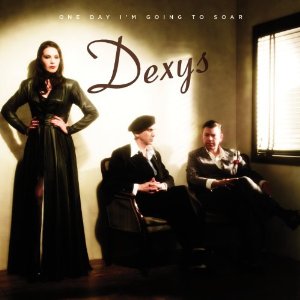
Dexys – One Day I'm Going To Soar
BMG
Released: 7th June 2012
There must be something in the air this year as it seems every band there ever was is reuniting to record and release new music as if having one last throw of the dice before bowing to some momentous final judgement. Of course, this is one symptom of the current void in the music scene where very few young bands are offering anything of any substance to grip the nation’s consciousness, and the latest to climb back into the ring are Dexys, some twenty-seven years after the release of the insanely brilliant
Don’t Stand Me Down and thirteen years after Kevin Rowland’s well publicised solo album of cover versions,
My Beauty. Having cleansed himself of the cocaine and relocated back to London, Rowland has reunited with former original Midnight Runners ‘Big’ Jim Paterson (trombone) and Pete Williams (bass), whilst also recruiting fleeting former member Mick Talbot (keyboards), once of the Merton Parkas and the Style Council, and his latest outfit have produced eleven tracks here, co-written with both Talbot and Paterson, as well as other such luminaries as Sex Pistol Glen Matlock and Alex James of Blur.
“I don’t show much of myself in life / But in my music I tend to put it all in / It’s like I got a need to get it all out of me,” Rowland narrates in the brutally honest closing track ‘It’s OK John Joe’, and we know from experience that no Dexys album is ever just a record release but an explosion from Rowland’s innermost being, infused with a potent mixture of joy and pain, emotional turmoil, confession, doubt and no little swagger. Four albums in thirty-two years reveals the cost of it all, but would any of us want to change him in any way? One Day I’m Going To Soar is a fitting addition to the canon, a record that will not fail to raise some eyebrows, some laughter, and an awful lot of spirits.
Musically, Dexys used the vacuum of the post punk music scene to give sixties soul a new relevance in the 1980s, and there are plenty of echoes of the horn-drenched passion of the Searching for the Young Soul Rebels era; the proclamatory opener ‘Now’ and the bustling ‘Free’ are vibrantly uplifting, but Rowland has far more on offer here, enticing the listener with the lusty jazz lounge cocktail of ‘She Got A Wiggle’ and the forties crooning of ‘I’m Thinking Of You’. Despite his prolonged absence from the fray, it is clear that Rowland’s writing skills have continued to evolve and he seems more at ease with his own voice, giving the whole a confident, even comfortable air. Not that this is ever easy listening: this is crafted, impressive stuff with beautiful arrangements and thoughtful construction. Yet the highlight is when the singer pours out his thoughts on love in a two-song duel with vocalist Madeleine Hyland. ‘I’m Always Going To Love You’ and ‘Incapable Of Love’ have you laughing out loud and shaking your head in bewildered admiration at the sheer nerve of it all. But through the laughter comes the realisation that Rowland may be treating the subject in an light-hearted way, but he is revealing fundamental truths about a damaged soul and though he is able to accept who and what he is, there will never be any redemption. “I know about using people until I tire of them,” he admits later, but let’s hope the new Dexys are able to build on this fine beginning before Rowland again heads off into the darkness.
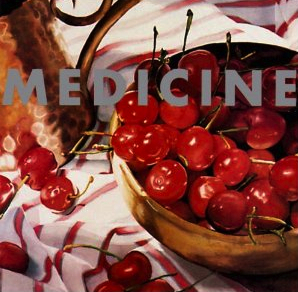
Medicine - Shot Forth Self Living / The Buried Life
Captured Tracks
Released: 7th June 2012
American label Captured Tracks continues to make available some of the great music of indie era, with their latest project being a remastering and repackaging of the first two albums by Medicine, Brad Laner's noise merchants from the San Fernando Valley. With a more comprehensive box set from the band not apparently available over here, we have to make do with the revised 2CD and 2LP reworkings of 1992's magnificent
Shot Forth Self Living (reviewed in our look at Creation Records
here) and the following year's
The Buried Life which was always tricky to get hold of in this country. The debut album comes with six extra tracks including an earlier working of the excellent single 'Time Baby' and another whole disc containing nineteen extras, demos and live recordings amongst the spoils.
The Buried Life is matched with five extras, including the single version of 'Never Click' and its bonus disc (again with nineteen tracks) includes unreleased recordings, live numbers, demos and sessions.
At the heart of Medicine's work is Laner's distorted guitar work which is played off beautifully with the intertwining vocals of Beth Thompson and Laner himself. At its best, they are untouchable and it was an anxious wait to see whether the band could follow their debut with anything as magical. Fortunately, The Buried Life did not disappoint, though occasionally the direction of the music veered away from the expected with clear echoes of My Bloody Valentine in tracks such as 'The Pink', 'Babydoll' and 'She Knows Everything' and the dancier element of contemporary British independent music in 'Slut'. This is all fine, but it is when Medicine are being themselves that they really impress, 'Never Click' in its full six minute glory is a simply gorgeous wade through blissful waters, 'Beneath The Sands' whispers and howls its own magnificence, and 'I Hear' spits in the face of any doubters.
Of course, being Medicine, it doesn't all quite fit perfectly. 'Emmeline' is a waste of time and space and the gentle, string accompanied 'Lie It Down' a little incongruous. But all in all, The Buried Life was a fine second album and it was only a pity the band ground to a half following their third outing, Her Highness in 1995. Available only as imports these aren't cheap, but they are records you need to have in your life. And the artwork is great. Well worth an investment.

A Place To Bury Strangers - Worship
Dead Oceans
Released: 11th June 2012
From old school American noise merchants to the current version, New York trio A Place To Bury Strangers have followed up the release of February’s impressive ‘Onwards To The Wall’ EP with their third album proper and the band’s first since 2009’s Exploding Head. Having left Mute after one album to sign for Dead Oceans, APTBS’s career seems to have stalled a little since they first appeared in the UK in 2008 to much critical acclaim, with the new album creating very little comment in the media, and NME lazily brushing it aside without even managing to feature the correct album sleeve. Worship is actually rather good, ranging from the blistering, warped punk of ‘Revenge’ and the madly galloping ‘Why Can’t I Cry Any More’ to the morbidly slow and painful ‘Dissolved’ and edgy, single-minded 'Slide'. APTBS's approach is not dissimilar to bands such as The Jesus & Mary Chain, in that Oliver Ackermann narrates his straightforward vocals as if oblivious of the fantastic swathes of noise that surround him and, on occasion, he acquires a noble insouciance as the world collapses all around. Every song here is blistered by stunning guitar effects that never fail to dazzle and it's great to hear such devastating bursts of controlled noise in what must now be considered a very old school approach – not noise for noise's sake, but a structured chaos with just the right amount of confusion thrown in. And who doesn't love songs that just stop when they have had enough, as does the opener 'Alone'? Worship is a terrific record: it's noisy, its grinding and aims right for the throat and that's alright by us.
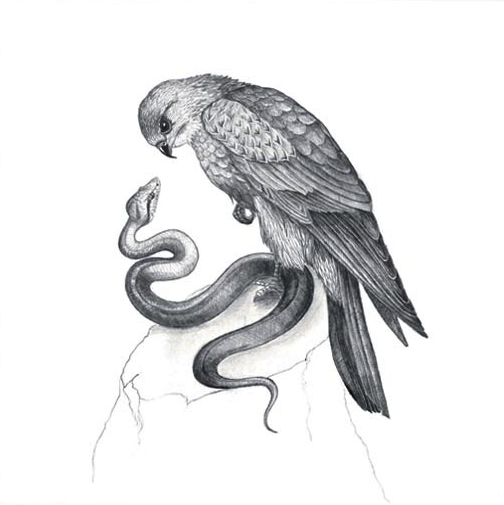
Savages - Husbands
Pop Noire
Released: 29th June 2012
OK, this is not an album but a seven inch vinyl single offering the first recorded works of London's Savages and it's well worth getting your hands on a copy before they all disappear and start selling for a small fortune. An explosion of post punk splendour, 'Husbands' is driven along by a pulsing bass and punctuated by storms of guitars, all complementing the excellent vocals of Jehnny Beth relating a grim tale of alienation, and it all succeeds in creating an air of dark intensity that is so seldom found in music these days. No doubt much will be made of the fact Savages are all women (as if women had not made some of the greatest music of the past three decades) and it will be hard to get through a review without mentioning Siouxsie and the Banshees, who, to be fair, are an obvious reference point, something that can be underlined by the flip side of the record 'Flying To Berlin' which lives up to its connotations by resurrecting early 1980s Cold War edginess with its mesmeric razor guitars, courtesy of Gemma Thompson, and a splendid bass line from Ayse Hassan who, along with Fay Milton on drums, doesn't give an inch to ease the building pressure. This is a band who work seamlessly to create gorgeously dark moods and, only having been together for about twenty minutes, will no doubt grow and grow. Savages bring much joy and no little relief as they are exactly what the world has been crying out for. The band are touring in July and August so get to see them in a small venue while you can. Glory awaits.







